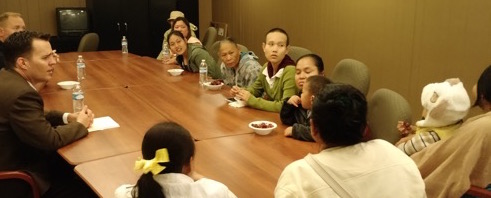
At a formative stage in my career, I was a secondary school Peace Corps teacher in northern Benin. My community lies along the Niger River. After class, teachers wearing cool, bright cotton poured three rounds of tea from a small, blue pot, while sitting on a braided plastic mat in the shade at the edge of the road. Motorcycle taxi-men napped on their “motos” in the shade of a billboard, feet propped up on the handbars, green and yellow uniform shirts buttoned once near the top. In the stiff air, goats pressed firmly against the whitewashed walls of the nearby mosque.
During my English classes, I would ask my students complex questions in basic vocabulary: Who attends school in your home? What do you know about the scars on your cheeks? What do you grow in your fields? Why is it this way? We read from a handful of textbooks – 70 students under a corrugated roof. We held debates about ideas that emerged during these lessons and then created skits to illustrate what these ideas looked like in our own lives. Finally, we acted these skits in the open-air courtyard, to classmates and relatives under the neem canopy.